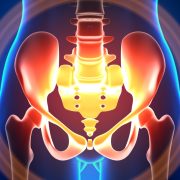
Working hard and playing hard can often lead to shoulder pain. At EmergeOrtho—Triangle Region, we encounter many types of shoulder injuries and conditions, many of which are the result of a sports mishap or overuse. One of the most common shoulder problems our active patients experience is rotator cuff tendonitis.
If you are an athlete, weekend warrior, 40-plus-hour laborer or simply shoulder an extremely active list of must-dos you may be curious about what can cause shoulder pain. Sadly, there are several conditions that produce shoulder pain. The most common source of shoulder pain, however… you guessed it — rotator cuff tendonitis.
At EmergeOrtho–Triangle Region, our fellowship-trained Shoulder experts are specifically trained and practiced in treating shoulder injuries safely and effectively. Whenever possible, we address shoulder cuff tendonitis non-operatively — and with great success!
Read on for the best ways to Emerge Stronger. Healthier. Better. in the light of a rotator cuff tendonitis diagnosis with the expert guidance of board-certified EmergeOrtho physicians.
What Is Rotator Cuff Tendonitis and How Long Does it Take to Heal?
In addition to being one of the most common causes of shoulder pain, rotator cuff tendonitis occurs as a result of the rotator cuff tendons becoming inflamed or damaged. As mentioned earlier, athletes (especially those involved in overhead throwing sports), heavy lifters, and individuals who use the shoulder frequently and consistently are more susceptible to developing this condition.
Now, the million-dollar question: How long will it take to heal from rotator cuff tendonitis?
The frustrating answer: it varies. Healing can take anywhere from a few weeks to a couple of months. Recovery depends on the severity of the condition and timeliness of treatment.
The more promising news; provided you seek and apply expedient treatment, you will likely be able to alleviate symptoms of rotator cuff tendonitis and make a full recovery.
Types of Rotator Cuff Treatment
In additional positive news for rotator cuff pain treatment, there are several conservative methods your shoulder specialist can suggest.
 At EmergeOrtho, we offer the following non-operative treatment solutions to treat shoulder cuff tendonitis:
At EmergeOrtho, we offer the following non-operative treatment solutions to treat shoulder cuff tendonitis:
- RICE Method. Rest, ice, compression, and elevation or “RICE method” is especially helpful in reducing pain and inflammation in the shoulder. Your orthopedic physician will likely suggest applying ice to the affected area for 15 to 20 minutes every six hours.
- NSAIDs. Nonsteroidal, anti-inflammatory drugs (NSAIDs) can also be used to help alleviate pain and inflammation.
- Injections. Your physician may recommend cortisone injections to relieve symptoms and encourage healing.
- Physical Therapy. With the aid of a physical therapist, you can learn special stretches and exercises to strengthen and stretch the supporting muscles surrounding the injured tendons of the rotator cuff. These activities will help improve range of motion and prevent the onset of “frozen shoulder.”
Although not as common, some severe cases of rotator cuff tendonitis may require surgical intervention.
When to See a Doctor
Since the key to effective healing of rotator cuff tendonitis is early intervention, it is best to consult with an orthopedic shoulder specialist if you are experiencing any of the following symptoms:
- Problems with range-of-motion, such as lifting the arm without stiffness or pain
- Pain that radiates from the front of the shoulder to the side of the arm
- Pain that worsens with activity, especially with lifting or throwing movements
- Difficulty sleeping comfortably
- Weakness in the shoulder
- Issues trying to accomplish daily tasks (such as buttoning a shirt without pain)
To learn more, self-schedule an appointment now. Or, call us any time at (919) 220-5255.








